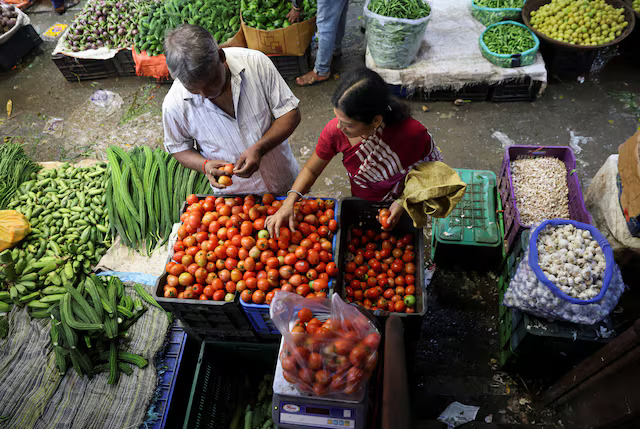India‘s economic growth is poised to rebound as domestic demand regains strength, but “stickiness” in food inflation warrants careful monitoring, the central bank said in its monthly bulletin released on Friday.
In India, there is a “conducive quickening” of high-frequency economic activity indicators in the second half of 2024-25, signalling implicit pick up in real gross domestic product growth for this period, the Reserve Bank of India said in an article titled ‘State of the Economy’ in the bulletin.
Rural demand continues to gain momentum, reflecting resilience in consumption, supported by brighter agricultural prospects, the RBI said.
A revival in public capex on infrastructure is also likely to stimulate growth in key sectors, it added.
The RBI’s now-cast model forecasts India’s economy to grow at 6.2% in the October-December quarter, per the bulletin.
India’s economy grew by 5.4% in the July-September quarter from a year earlier, compared with 6.7% growth in the previous three months.
Growth is projected to slow to a four-year low of 6.4% in the financial year ending March 31.
Although headline inflation eased for the second consecutive month in December, sticky food inflation warrants careful monitoring of second-order effects, the RBI said in the bulletin.
India’s annual retail inflation (INCPIY=ECI), eased to a four-month low of 5.22% in December, lower than economists’ estimate of 5.3%.
The slowing inflation is likely to pressure the Monetary Policy Committee to cut rates in February, but a depreciating rupee has complicated the rate-setting panel’s woes, some analysts said.
The volatility in portfolio flows due to global risk-on-risk-off sentiments is the source of exchange rate volatility rather than differentials in inflation or interest rates, the RBI said in a separate article in the bulletin.
“Throwing sand in the wheels to dampen the exchange rate volatility is more effective than attempts to influence the level of the exchange through large interventions,” the RBI said. (Reuters)

